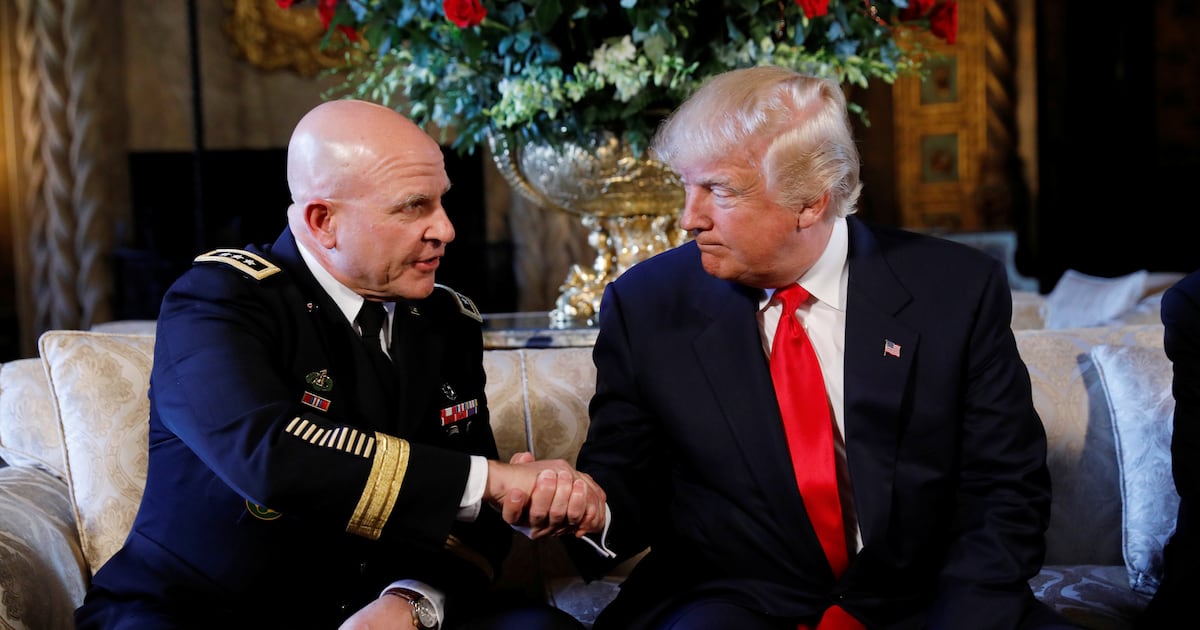It was a Senate floor soap opera over none other than a soap-opera producer.
At the beginning of December, Senator John McCain had gotten the chattering class in Washington tut-tutting about the ethically dubious relationship between money and influence, by justifiably humiliating the Obama administration’s nominee for ambassador to Hungary, Colleen Bradley Bell, a soap-opera producer and top bundler.
“We’re about to vote on a totally unqualified individual to be ambassador to a nation which is very important to our national security interest,” McCain said on the Senate floor. “Her qualifications are as a producer of the television soap opera ‘The Bold and The Beautiful,’ contributed $800,000 to Obama in the last election and bundled more than $2.1 million for President Obama’s re-election effort.”
This nomination to a country that, as McCain pointed out, has seen a rise by its fascist right-wing party during a time of conflict with Russia is pretty damning. It also came after nominations of ambassadors to Argentina, Iceland, and Norway, in which the nominees admitted they had never been to the countries.
While those might seem particularly egregious to the political passers-by, this was, as Senator Barbara Boxer noted, business as usual.
“You would think this is the first time that any president nominated someone that’s a political appointee,” she said on the floor following McCain’s speech. “I could point out people you supported, Senator, who perhaps didn’t work at all.”
In fact, as detailed in the new book from longtime diplomat Dennis C. Jett, American Ambassadors: The Past, Present, and Future of America’s Diplomats, from its inception, the United States has never had its representatives abroad made up of career professionals.
In the first 100 years of our nation, Jett claims, “virtually all American diplomats were political appointees” and none were called ambassador. This situation occurred for a number of reasons. There was an aversion early in the country’s history to anything that smelled like monarchy, and so even though the Constitution included the power to appoint ambassadors, “an ambassador was considered to be the emissary of a king, and the title was believed to be inconsistent with the values of an egalitarian society.” Those who served abroad were treated with suspicion that they had been infected by European diplomacy. As the 19th century progressed, the country’s general inward-looking stance meant that foreign relations were not a priority. The number of diplomats was pitiful (45 appointees in 1860), as was the amount of money allocated to them.
In addition, the diplomatic positions were often part of the “spoils system” used by presidents to reward those who supported them. In what will likely be music to every White House’s ears, Jett points to the State Department’s own historian, who wrote that under Jackson, “more often than not, however, personal wealth, political services, or social position, were the only requirements. Many lacked qualifications—even the most elementary knowledge of diplomatic etiquette.” In fact, so established was the spoils system that in 1881, Charles Guiteau assassinated President Garfield when he wasn’t given either the position of minister in Vienna or consul to Paris.
It wasn’t until 1893 that the first person would be awarded the title of ambassador—Thomas Bayard to Great Britain.
Due both to reforms aimed at weeding out corruption, and an outward focus of the U.S. after the Spanish-American War, the State Department began to take a form at the turn of the century recognizable today. Starting under Theodore Roosevelt and Howard Taft, embassies headed by career diplomats increased in number. Jett sees this number as a marker of how much the president allows professionals to do the job. Since World War II, that has largely remained at ratio of 70 percent of ambassadors being career diplomats, and 30 percent political apointees, the exceptions being Kennedy, Johnson, Ford, and Reagan who all had a higher number of political nominees.
The book is a mix between a history of the profession, a how-to for joining the Foreign Service, and a reflection on how the changing prerogatives of the country and presidents shape its image. While Jett writes in the end that he does not want to do away with political ambassadorships altogether, it’s fair to say that the status quo is far from acceptable in his mind. For Jett, ambassadorships for sale are, at best, an embarrassment to the rest of the world, and at worst, a national security threat.
Jett, a former ambassador, is now a professor at Penn State University’s School of International Affairs, and so the book is more academic in tone and content. His detailing of the rigorous process for advancement in the State Department is convincing in terms of the professionalism and qualifications of those serving.
Yet a far more convincing, and exciting, argument for the deleterious effects of what are essentially ambassadorships for sale would have been to compile a book cataloging such incidents. Tantalizingly peppered throughout the book are juicy stories that make the recent dustup over the Hungary ambassadorship look tame.
There is John Davis Lodge, under whom Jett served, who—while ambassador to Argentina as the country devolved into political chaos in the 1970s—was best known for making dinner attendees listen to him perform Broadway show tunes. A National Security Council memo to Henry Kissinger dug up by Jett claims that, “Ambassador Lodge and his Embassy not only fail to have any contact worthy of the name with the Argentine Government, but the Ambassador has become an object of contempt with that Government.”
Jett details the relentlessness of Reagan acolytes in his administration to place true believers and longtime political and financial allies in foreign-service positions.
While speaking in front of a grand jury, Nixon would talk about the history of ambassadorships for sale, pointing to famed society hostess Pearl Mesta’s ambassadorship to Luxembourg by Harry Truman. “Pearl Mesta wasn’t sent to Luxembourg because she had big bosoms. Pearl Mesta went to Luxembourg because she made a good contribution.”
Under the current president and his predecessor, Jett notes, the ambassadorship of Belize has gone to college roommates. The lack of experience on the part of Caroline Kennedy, he claims, may have been why she thought it was a good idea to tweet about Japan’s treatment of dolphins.
It’s hard, however, to get incensed about a fundraiser being appointed to Barbados or to Lichtenstein. Given that the system is unlikely to change, what will surely happen instead is that the nominations and confirmation hearings will become another arena for those who enjoy the sport of capricious moral superiority in Washington, like those who now get credibility by poo-pooing the Correspondent’s Dinner.





